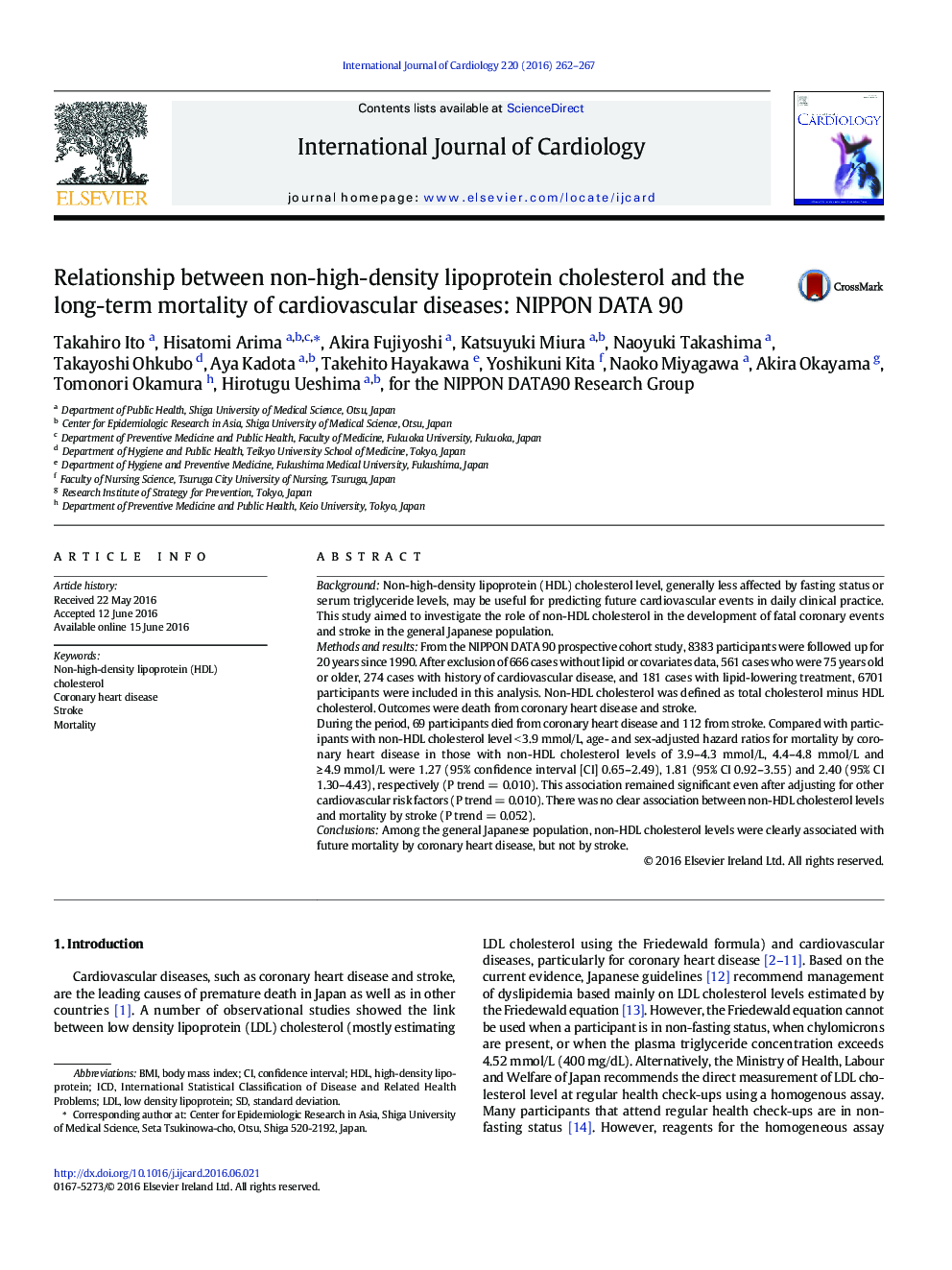| Article ID | Journal | Published Year | Pages | File Type |
|---|---|---|---|---|
| 5963468 | International Journal of Cardiology | 2016 | 6 Pages |
BackgroundNon-high-density lipoprotein (HDL) cholesterol level, generally less affected by fasting status or serum triglyceride levels, may be useful for predicting future cardiovascular events in daily clinical practice. This study aimed to investigate the role of non-HDL cholesterol in the development of fatal coronary events and stroke in the general Japanese population.Methods and resultsFrom the NIPPON DATA 90 prospective cohort study, 8383 participants were followed up for 20 years since 1990. After exclusion of 666 cases without lipid or covariates data, 561 cases who were 75 years old or older, 274 cases with history of cardiovascular disease, and 181 cases with lipid-lowering treatment, 6701 participants were included in this analysis. Non-HDL cholesterol was defined as total cholesterol minus HDL cholesterol. Outcomes were death from coronary heart disease and stroke.During the period, 69 participants died from coronary heart disease and 112 from stroke. Compared with participants with non-HDL cholesterol level < 3.9 mmol/L, age- and sex-adjusted hazard ratios for mortality by coronary heart disease in those with non-HDL cholesterol levels of 3.9-4.3 mmol/L, 4.4-4.8 mmol/L and â¥Â 4.9 mmol/L were 1.27 (95% confidence interval [CI] 0.65-2.49), 1.81 (95% CI 0.92-3.55) and 2.40 (95% CI 1.30-4.43), respectively (P trend = 0.010). This association remained significant even after adjusting for other cardiovascular risk factors (P trend = 0.010). There was no clear association between non-HDL cholesterol levels and mortality by stroke (P trend = 0.052).ConclusionsAmong the general Japanese population, non-HDL cholesterol levels were clearly associated with future mortality by coronary heart disease, but not by stroke.
